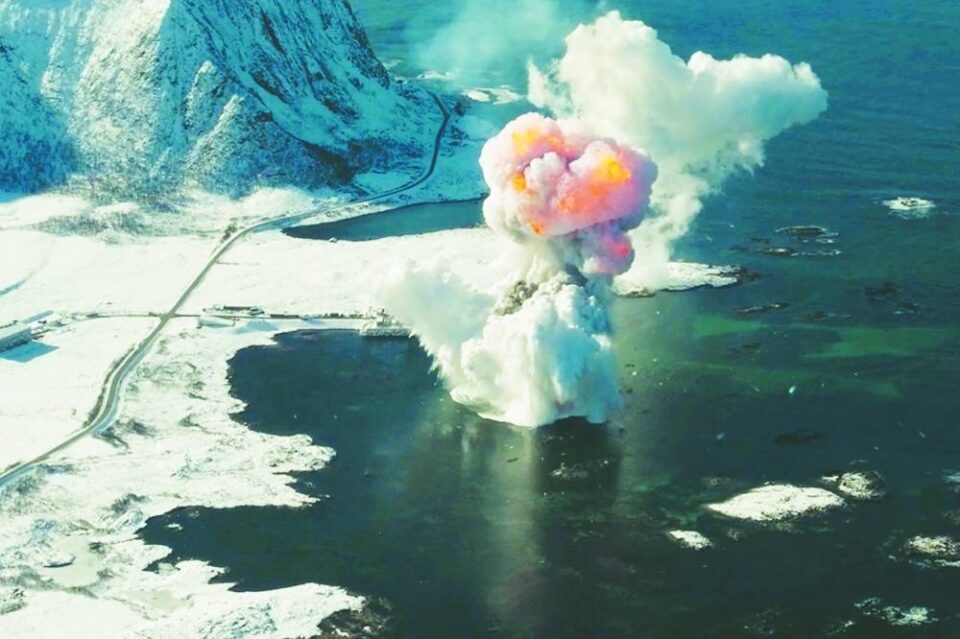The first orbital rocket launched from continental Europe crashed seconds after blast-off yesterday, in a closely watched test for the continent’s bid to build a new space economy.The Spectrum rocket, developed by German startup Isar Aerospace, started smoking from its sides, then crashed back to Earth with an explosion just after launching from Norway’s Andoeya Spaceport in the Arctic, in live video broadcast on YouTube.Isar Aerospace, which had said it did not expect to reach orbit with the launch, said the two-stage rocket fell into the sea, adding that “the launch pad seems to be intact”.Andoeya Space, the Norwegian public firm that operates the spaceport, said that “crisis response” measures had been activated following the “incident”.Police said no injuries or damage beyond the rocket itself.Orbital rockets are designed to place loads such as satellites into or beyond Earth’s orbit.Ahead of the launch, which had been repeatedly postponed due to weather conditions, Isar Aerospace had downplayed expectations, saying that the goal was not to reach orbit in its first attempt.“Our first test flight met all our expectations, achieving a great success. We had a clean liftoff, 30 seconds of flight and even got to validate our Flight Termination System,” said Daniel Metzler, the firm’s co-founder and chief executive.In an online press conference following the launch, Metzler insisted that Isar was “very well positioned” to take advantage of the rocket-to-satellite market, adding that the company would “make the adjustments that are necessary” to the spacecraft.Two more Spectrum rockets are already in development, the company said.The 28m (92’) tall, 2m diameter rocket has a one-tonne carrying capacity, but was unloaded for the test flight.Spectrum’s blast-off was the first of an orbital launch vehicle from the European continent, excluding Russia, and Europe’s first financed almost exclusively by the private sector.“Today is an important day for German and European space travel,” said German Economy Minister Robert Habeck. “Isar Aerospace can and will make a decisive contribution to securing Europe’s independent access to space.”A first European orbital launch attempt was made in 2023 by billionaire entrepreneur Richard Branson’s Virgin Orbit.It attempted to use a Boeing 747 to launch a rocket into orbit from southwest England, but failed, and the company folded.Europe has had no access to Russian space stations or launchers since Moscow’s 2022 invasion of Ukraine, which sent diplomatic relations on a downward spiral.Europe’s space industry has also seen delays in the development of the Ariane 6 rocket and the suspension of the Vega-C satellite launcher after an accident.It wasn’t until March 6, when the first commercial flight of an Ariane 6 rocket took off from French Guyana, that Europe was able to regain launch independence after months without access to space for heavy payloads.While the US already has giants such as Elon Musk’s SpaceX and Jeff Bezos-founded Blue Origin, in Europe, commercial space activities driven by private companies – dubbed “New Space” – are still in their infancy.Global players in the satellite launch market include Elon Musk’s SpaceX, which launches from the United States, and French ArianeGroup, a joint venture between Airbus and Safran that uses a spaceport in South America’s French Guiana.SpaceX also operates the Starlink satellite service, a communications network spanning much of the globe.Germany’s BDLI aerospace industries association said that Isar’s first flight would lead to further progress.“Europe urgently needs to ensure its sovereignty in space. Elon Musk’s Starlink is not without alternatives – nor should it be,” BDLI managing director Marie-Christine von Hahn said.Isar Aerospace was founded in 2018 in Munich.Europe is also home to Germany’s HyImpulse and Rocket Factory Augsburg (RFA), French groups Latitude and MaiaSpace and Spain’s PLD Space, all racing to establish themselves as key players in the sector.Yesterday’s launch generated “tonnes of data that the teams can now evaluate and learn from”, an Isar Aerospace commentator said on the YouTube live stream.In parallel with the development of new rockets, a number of spaceport projects have emerged across Europe, from the Portuguese Azores to the British Shetland Islands, Norway’s Andoeya and Esrange in neighbouring Sweden, many vying to be the first to launch.
